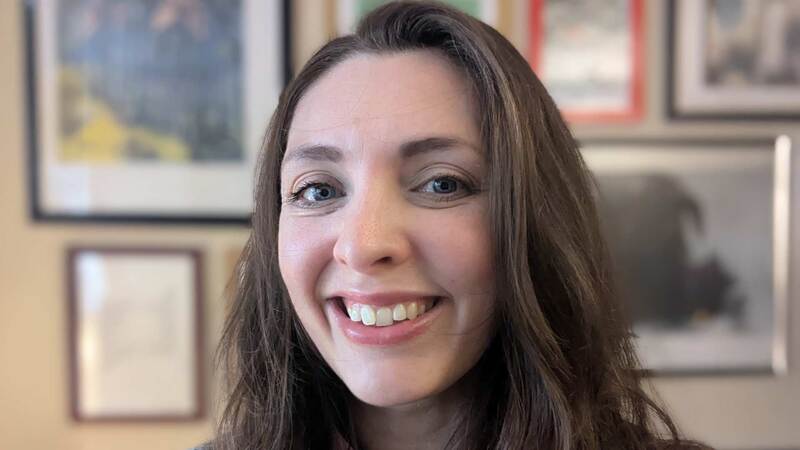You are viewing your 1 free article this month. Login to read more articles.
The industry is ‘hostile environment on multiple levels’, says Singh
Jhalak Prize co-founder Sunny Singh has called out the industry’s “moral failure” to reflect diversity at every stage of publishing.
Speaking in a video conference panel discussion on the future pipeline of publishing, held on Friday (26th June), Singh said she could “no longer believe the industry thinks it’s acting in good faith” where championing diversity is concerned.
“The way writers of colour are published, the way they are received, the way they are reviewed or not reviewed — at all levels the hostility is there,” she said.
“If 400 years ago Aphra Benn could understand why equality is necessary, it’s not a question of not knowing or understanding. To me now it’s a question of moral failure, on the part of the industry. I want to raise a question: we’ve said this over and over again for a few centuries. What is it that you don’t get? Or is it that you are refusing to get it?”
Hosted by Word of Colour executive director Joy Francis, the session was held following the Rethinking "Diversity" in Publishing report by Dr Anamik Saha and Dr Sandra van Lente, released this week in a partnership between Goldsmiths, University of London, Spread the Word and The Bookseller.
Singh urged the industry to confront the problem structurally. “We need to see agents, publishers, writers, sales and marketing people of colour. Why aren’t we seeing people of colour at the executive level? I want to see those changes at the top of the ladder. Just one person is not good enough. For the publishing industry to convince me that they’re doing something, I want to see those changes at the top, not just, ‘Oh we’ve recruited another batch’, who will all end up leaving in five years because they’re burned out, exhausted and frustrated. That’s what I need the publishing industry to do.”
She also called on academics to “widen the breadth of authors” on university syllabuses, saying that failing to publish and teach writers of colour perpetuated racism. “It is a failure of intellect if you are refusing to read and teach writers who are not white,” she said.
Commenting on the report's findings, Emma Paterson, literary agent at Aitken Alexander, said it was “completely right that agents got a tough ride in the report", saying "there is a stark failure everywhere”. Reflecting on the wake of the Black Lives Matter movement, she criticised agents who rushed to platform black writers and writers of colour using Twitter call-outs. “The way it was handled was appalling. You should be looking at why you’ve failed rather than seeking to profit from black death,” she said. “What really exhausts me is the constant handwringing, as if the industry doesn’t know what to do, as if the writers aren’t there. The writers are there, they’ve always been there.”
Aimee Felone, children’s book publisher at Knights Of, and bookseller at Round Table, recently launched a crowdfunding campaign to support diversity-led independent bookshops as she found the “work to support indies in the UK to be sorely lacking”. She described “coming up against structural problems at every step of the way” when trying to publish books with a brown or black child on the cover. “We are ultimately trying to publish stories for children that are representative,” she said. “There is an assumption that unless you’re selling a trauma narrative, it won’t be appealing to readers.”
Author and mentor Nikesh Shukla said “people want a sexy, quick solution to the diversity problem” rather than the time invested in mentorship schemes and inspiring confidence in writers of colour. “The work has got to start from early on and extend beyond the publishing process,” he said. Shukla described overt racism he has experienced and warned of the “mental toll” and expectation placed on writers of colour to discuss diversity and racism.
Both Singh and Shukla said writers of colour were consistently pigeon-holed into writing about race, with Shukla urging publishers to “widen the scope of what writers of colour can write about” and asking white writers to consider what they’re doing to “further the cause” for their black and brown counterparts.
He said white employees need to “amplify black and brown voices and be braver about asking uncomfortable questions” in order to further the work that needs to be done around representation.
Shukla and Sandra Van Lente, joint researcher of the report with Dr Anamik Saha, urged mentorships and “collaboration between agents and publishers” as a way of working to improve diversity. “Don’t only go to London,” she said, “go out and do the work and find these voices. They are everywhere.”
Saha suggested that going forward, the industry needs to “rethink assumptions about writers of colour” because they are “precisely the reason that the old hierarchies and structures are kept in place”. He added that white writers, publishers and industry workers must play their part in being “actively anti-racist” and “put to bed the benign language around diversity” to deal with “past complacency”.














